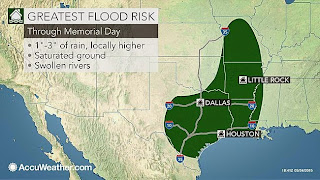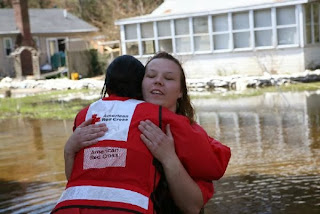Tropical Storm Bill has arrived in the North Texas Region and will be dumping buckets of rain of 8 inches or more in specific areas throughout our region. The Red Cross has put together a list of resources for cities around the DFW area.
Arlington: Pick up FREE sandbags in the parking lot of the Traffic Engineering/Public Works Transportation facility at 1011 Main Street, between Cooper and Davis. Personnel will be handing them out Monday through Friday from 8:00 a.m. to 5:00 p.m.
For more information call: 817-459-5400
Lewisville: The city has an emergency alert system set in place to notify residents of possible disasters in the area. To receive updates click here to be put on the list for up to date information. It also has a preparedness program KnoWhat2Do program for general safety tips during disasters.
For more information call: 972-219-5012
Denton: The city urges residents to sign-up for CodeRed alerts for emergency notification, click here to be put on the list.
CodeRED is operated through the National Weather Service and serves many communities in the North Texas Region, click here to find your community.
Garland: Urges residents of flood damage to call the city at 972-205-2000 Monday through Friday from 8a.m. to 5 p.m. You can also subscribe to Garland's Enews service for general updates, click here to be put on the email list.
If you need assistance with cleanup from the recent flooding throughout Texas, please call
1-800-451-1954 Monday through Friday 8 a.m. to 5 p.m.
Flower Mound: Subscribe to email updates through the city's website page here.
Grand Prairie: Residents can receive information regarding weather on updates on its website, Facebook and Twitter accounts. The city urges to follow all communication platforms. If an evacuation is issued emergency personal will personally knock on residents doors.
Mesquite: Citizens can register for Notify Me updates regarding emergencies and other city updates here.
If you were impacted by the storms and need Red Cross assistance, please call this hotline number:
1-877-500-8645













